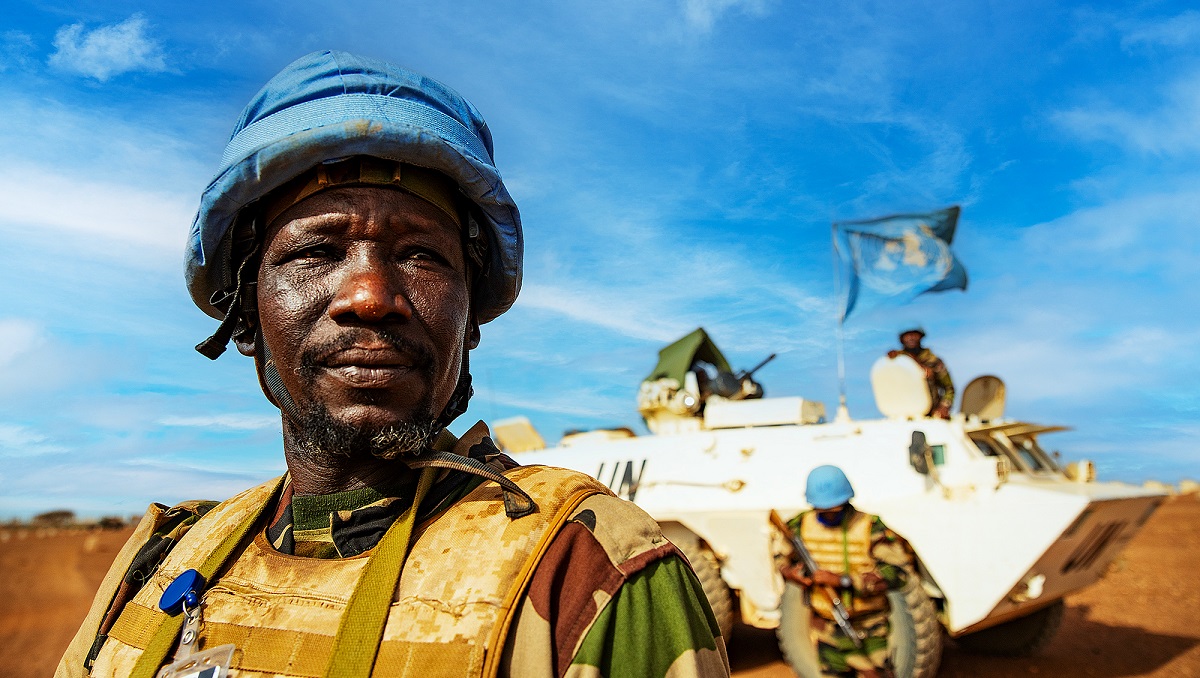
The United Nations Multidimensional Integrated Stabilization Mission in Mali (MINUSMA) was established on April 25, 2013 to stabilize the country after the Tuareg rebellion of 2012. In June 2023, a new government that had come to power in a coup withdrew the mandate, forcing the mission and all of its staff to depart the country by the end of the year. Joe Ruzicka served as the Senior Advisor to the Commanding General, as well as the Senior U.S. Military Observer to MINUSMA, during that turbulent time. He is in the studio with guest hosts Jonny Drake and TJ Moffatt to discuss his experiences in Mali and why the mission ended. It’s the second of a two-part episode that examines the pros and cons of how the UN mission in Mali was conducted.
You can listen to part 1 here.
I think in changing the mandate to ask MINUSMA to withdraw within six months gives the government of Mali an opportunity to solely partner with Wagner and then potentially do things the way they want to do things without the fear of that watchful eye.
Podcast: Download
Joe Ruzicka currently serves as the Chief of Current Operations for United States Army South. He is a colonel and an Armor Officer who has served in various command and staff positions to include the Senior Advisor to the Commanding General, UN Mission, Mali (MINUSMA) as well as the Senior U.S. Military Observer to MINUSMA.
Jonny Drake is a former artilleryman, a current Foreign Area Officer and a colonel in the U.S. Army. He has served in various operational and strategic assignments across Europe, the Middle East, Central Asia, and Eurasia. He is currently the Chief of Peace Operations Division at the Peacekeeping and Stability Operations Institute.
TJ Moffatt is currently the Deputy Director of the U.S. Army Peacekeeping and Stability Operations Institute (PKSOI). He is a retired colonel who served as both an Infantry Officer and 48C, European Foreign Area Officer in the U.S. Army. With extensive security cooperation experience, he has worked to build partner capacity in many allied and partner countries in eastern Europe and Africa. His last assignments in the Army include Commander, U.S. Military Advisory Group and Director of European Studies/Deputy Dean at the U.S. Army War College.
The views expressed in this presentation are those of the speakers and do not necessarily reflect those of the U.S. Army War College, U.S. Army, Department of Defense or the United Nations.
Photo Description: Blue helmets from the Nigerien contingent of MINUSMA provide security during the arrival of the delegation of the Special Representative of the UN Secretary-General in Mali, El-Ghassim WANE in Ménaka to meet local authorities, internally displaced persons and humanitarian actors.
Photo Credit: MINUSMA/Harandane Dicko





In order to better be able to understand the problem with UN missions — in places like Mali and/or elsewhere — and to, thereby, better be able to understand who would stand in the UN’s (and the governments the UN supports) way in this regard; in order to do this, in the previous podcast (“Searching for Peace in Timbuktu: The UN Mission in Mali Part I), I used quoted items from Samuel P. Huntington to attempt to show that:
a. The problem lies in the fact that these such UN missions are exceptionally well-known to be “modernizing,” “development,” and/or “redefining the identity of the nation” missions which,
b. Understandably are opposed by those who do not wish to be so “modernized,” so “developed,” and so “redefined.” (Thus, not likely to achieve “peace” — rather, just the opposite?)
In this current podcast, let me attempt to use a similar understandings within international law; this, to try to make this exact same case:
“Within the existing framework of international law, is it legitimate for an occupying power, in the name of creating the conditions for a more democratic and peaceful state, to introduce fundamental changes in the constitutional, social, economic, and legal order within an occupied territory? … These questions have arisen in various conflicts and occupations since 1945 — including the tragic situation in Iraq since the United States–led invasion of March–April 2003. They have arisen because of the cautious, even restrictive assumption in the laws of war (also called international humanitarian law or, traditionally, jus in bello) that occupying powers should respect the existing laws and economic arrangements within the occupied territory, and should therefore, by implication, make as few changes as possible.” (See the first two paragraphs of Sir Adam Roberts “Transformative Military Occupations: Applying the Law of War and Human Rights.)
Although, obviously, Mali and other states and societies within which the UN operates are not being “occupied” (although those “resisting modernization,” etc., might disagree with my such statement), these such states are, indeed, attempting to be “transformed” (i.e., modernized, developed, redefined).
Herein, international law, as noted by Sir Adam Roberts above, says you are not supposed to do this. Why? Because it is exceptionally well known that these such “transformative” processes are one of THE best ways known to undermine “peace,” to undermine “stability,” etc. (Thus, the caution/the attempt to “outlaw” this such process in international law above?)
Question — Based on the Above:
Given that the Russian/Wagner Group — as it operates in Mali and/or elsewhere —
a. May not have state and societal “transformative” purposes/state and societal modernization, development and/or redefinition purposes (is this possible?) and, thus,
b. Is not burdened, for example, with democracy, human rights and/or free market economy creating and sustaining requirements.
Given this possibility, then might the Russian/Wagner Group’s such “peacekeeping” model — from the perspective offered by international law above — be thought to be much more likely to succeed?
As to my thoughts above, note that — even in our very own Joint Publication 3-22, Foreign Internal Defense (therein, see Section II, Internal Defense and Development Program and, there, Chapter 2, Construct) — the cause (and, thus, certainly not the “cure”) of instability, “unrest,” etc., this is readily acknowledged as:
a. The the political, economic, social and/or value changes that the host government, and the U.S./the West, are trying to implement; these,
b. In the name of such things as “development:”
“a. An IDAD program integrates security force and civilian actions into a coherent, comprehensive effort. Security force actions provide a level of internal security that permits and supports growth through balanced development. This development requires change to meet the needs of vulnerable groups of people. This change may, in turn, promote unrest in the society. The strategy, therefore, includes measures to maintain conditions under which orderly development can take place.”
(Thus, whether you are an American or coalition soldier working with and/or for the UN and a host government involved in “peacekeeping — and/or an American or coalition soldier working with and/or for a host government involved in “foreign internal defense” — you are actually marching to the exact same “development” tune? Wherein, in both such cases [and others], [a] the enemy are those who do not wish to be so “developed” and [b] instability is clearly understood as being the cost of doing the development business?)
Accordingly, we should take great heed of Clausewitz suggestion that “the first, the supreme, the most far-reaching act of judgment that the statesman and commander have to make is to establish…the kind of war upon which they are embarking (post-the Old Cold War, wars to “transform”/to “develop” outlying states and societies more along modern western political, economic, social and/or value lines), neither mistaking it for, nor trying to turn it into, something (such as “peacekeeping” minus development or “foreign internal defense” minus development) that is alien to its nature.” (Items in parenthesis above are mine.)